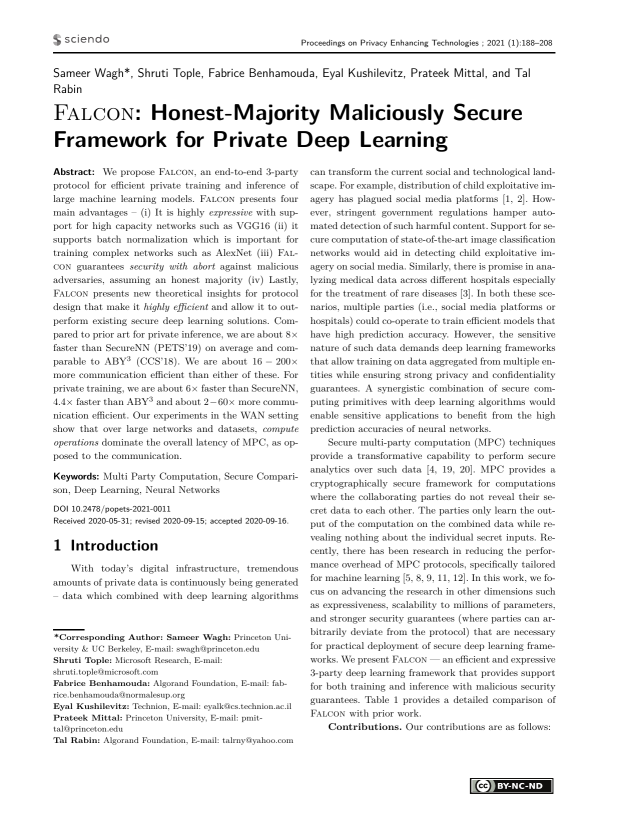Falcon: Honest-Majority Maliciously Secure Framework for Private Deep Learning
Authors: Sameer Wagh (Princeton University & UC Berkeley), Shruti Tople (Microsoft Research), Fabrice Benhamouda (Algorand Foundation), Eyal Kushilevitz (Technion), Prateek Mittal (Princeton University), Tal Rabin (Algorand Foundation)
Volume: 2021
Issue: 1
Pages: 188–208
DOI: https://doi.org/10.2478/popets-2021-0011
Abstract: We propose Falcon, an end-to-end 3-party protocol for efficient private training and inference of large machine learning models. Falcon presents four main advantages – (i) It is highly expressive with support for high capacity networks such as VGG16 (ii) it supports batch normalization which is important for training complex networks such as AlexNet (iii) Falcon guarantees security with abort against malicious adversaries, assuming an honest majority (iv) Lastly, Falcon presents new theoretical insights for protocol design that make it highly efficient and allow it to outperform existing secure deep learning solutions. Compared to prior art for private inference, we are about 8× faster than SecureNN (PETS’19) on average and comparable to ABY3 (CCS’18). We are about 16 − 200× more communication efficient than either of these. For private training, we are about 6× faster than SecureNN, 4.4× faster than ABY3 and about 2−60× more communication efficient. Our experiments in the WAN setting show that over large networks and datasets, compute operations dominate the overall latency of MPC, as opposed to the communication.
Keywords: Multi Party Computation, Secure Comparison, Deep Learning, Neural Networks
Copyright in PoPETs articles are held by their authors. This article is published under a Creative Commons Attribution-NonCommercial-NoDerivs 3.0 license.


